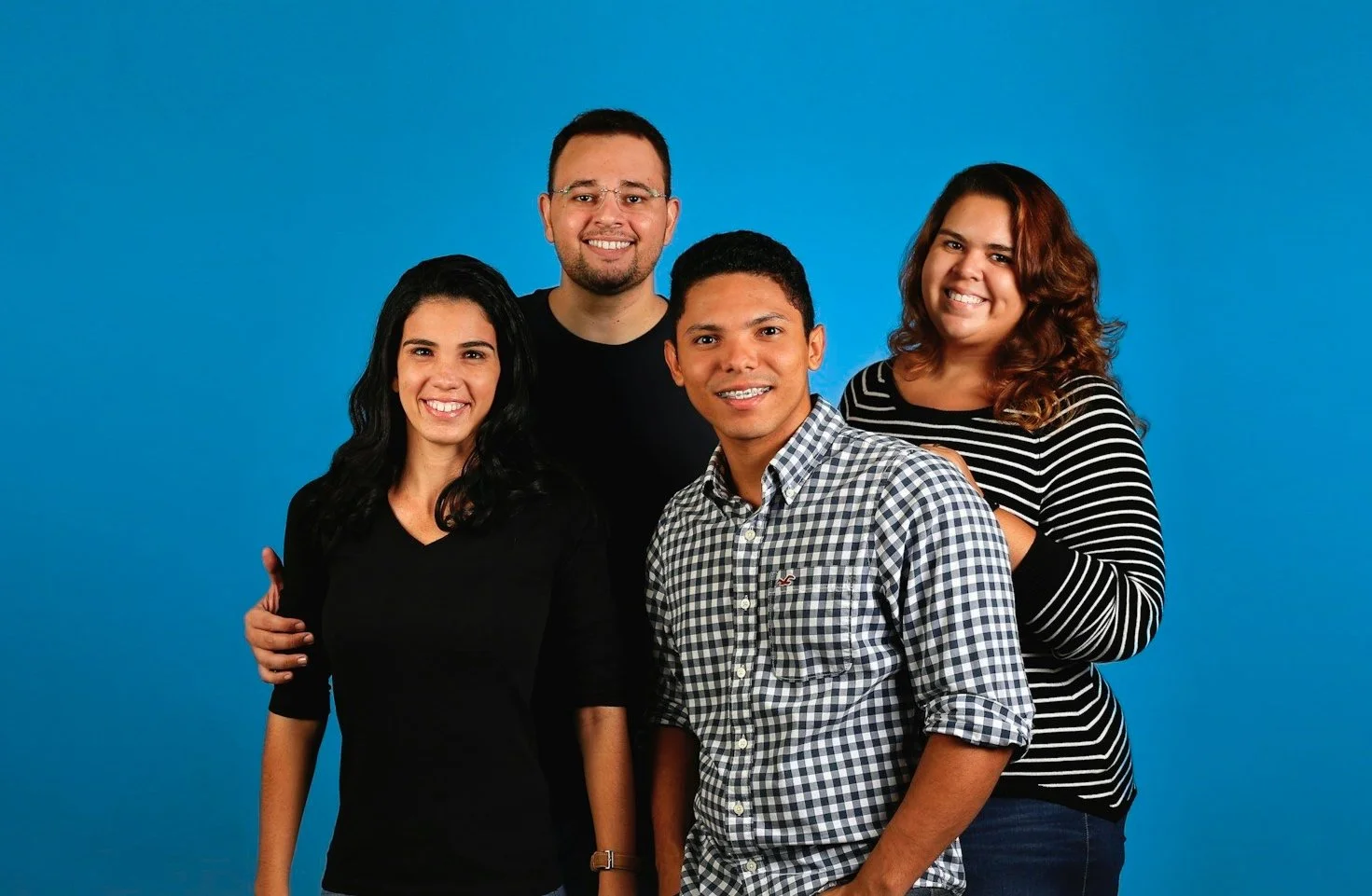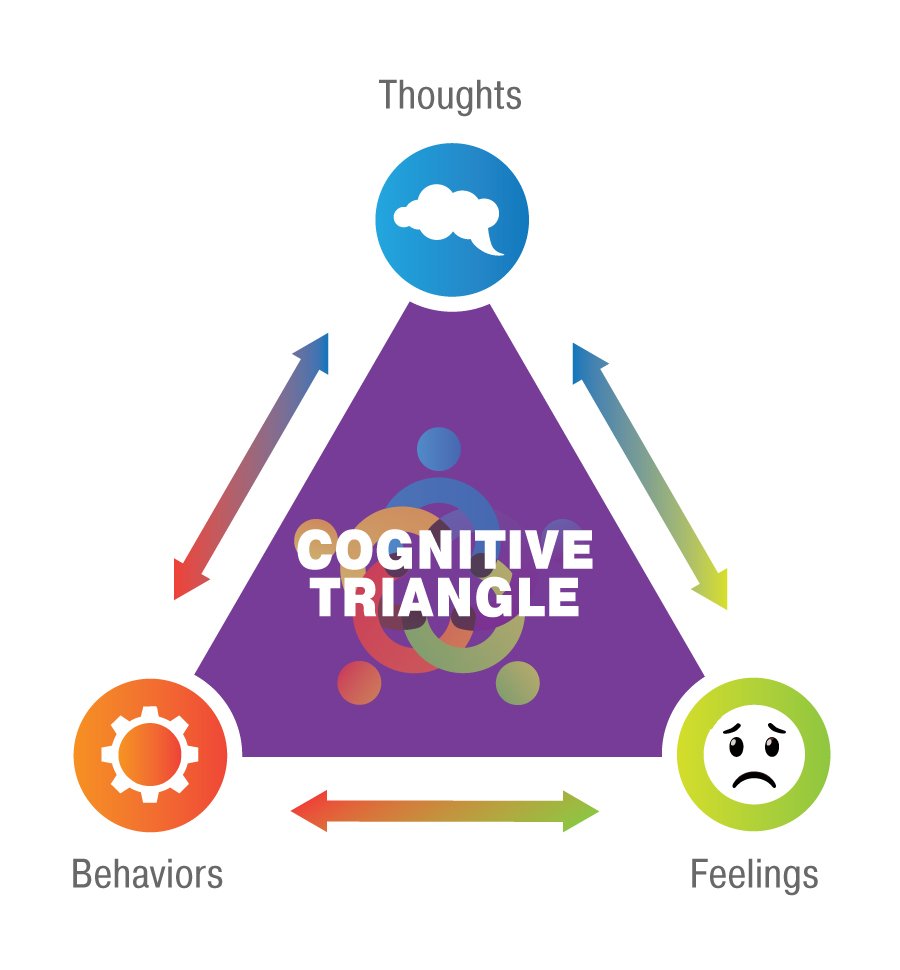What we offer children, teens, young adults, parents
Children and Teens
We offer 1:1 therapy for children and teens. Our individual therapy provides personalized teaching of evidence-based CBT tools for youth’s particular challenges. It equips them with essential coping skills tailored to each young person's unique stage of development, needs, and identities. Our approach uses researched strategies and a connection with your child/teen to enhance their mental health and build resilience.
Young Adults
We offer 1:1 individual therapy for young adults 18- to approximately 25-years old. We provide personalized teaching of evidence-based CBT tools for your particular challenges and equip you with essential coping skills tailored to your unique background, experiences, needs, identities, and goals. Our approach uses strong science and a connection and understanding of you to enhance your mental health and build resilience.
Parents
We work collaboratively with parents when working with children and teens. We also offer specialized parent training. Both of these services provide parents with tools to manage their own responses to their child/teen and skills to support their child/teen effectively as they learn new ways to manage their symptoms.
Challenges we treat include
-
Anxiety is characterized by feelings of tension, worry thoughts, and physical changes. Anxiety is considered a future-oriented response focused on a perceived threat, Occasional anxiety is a normal part of life. However, for many children, teens and young adults, the anxiety does not quickly go away and can get worse over time. The symptoms of anxiety can interfere with daily activities such as family relationships, school, social life and/or extracurricular activities. There are several types of anxiety disorders, including separation anxiety disorder, generalized anxiety disorder, panic disorder, and social anxiety disorder. At the CBT Tools for Life Center, we are all experts in Cognitive Behavioral Therapy (CBT), a scientifically proven treatment for anxiety, that helps children, teens and young adults learn calming strategies, mindfulness tools, tolerating and managing intense emotions, how to identify and change negative thought patterns and unhelpful behaviors. We also work closely with parents to help them support their children and teens as they learn new ways to manage their own difficulties. Through learning CBT tools, children, teens and young adults are able to challenge irrational fears, develop healthy thinking habits, and build coping strategies. This approach not only reduces anxiety symptoms but also equips them with lasting tools to manage anxiety independently throughout their lives.
-
Obsessive-Compulsive Disorder (OCD) is a disorder in which a person experiences uncontrollable and recurring thoughts, images or urges (obsessions), engages in undesired, repetitive behaviors (compulsions), or both. People with OCD can have time-consuming symptoms that may cause significant distress or interfere with many aspects of daily life. Fortunately, treatment is available to help people manage their symptoms and significantly improve their quality of life. We specialize in treating OCD in young people, using Cognitive Behavioral Therapy (CBT), specifically Exposure and Response Prevention (ERP). Strong scientific evidence supports this powerful approach that helps children and youth gradually face their fears and resist the urge to engage in compulsive behaviors. We also work closely with parents to educate them about OCD and how they can support their child or teen through reducing accommodations and reinforcing new, more effective coping strategies. Through CBT and ERP, children, teens, and young adults learn to challenge obsessive thoughts, break the cycle of compulsions, and develop effective coping strategies, empowering them to manage OCD symptoms and live their lives according to their values and priorities rather than being controlled by their OCD symptoms.
-
A phobia is an intense, irrational, persistent fear of something that poses little or no actual danger. Even fears of dangerous things such as snakes can be a phobia if the fear is extreme and uncontrollable and interferes in a child’s or teen’s life. Although children and youth with phobias may realize that these fears are irrational or exaggerated, even thinking about facing the feared object or situation often brings on severe anxiety symptoms. We treat phobias and fears using evidence- based treatments including Cognitive Behavioral Therapy (CBT) and Prolonged Exposure (PE). These approaches focus on teaching coping tools and strategies and gradual exposure to feared situations in a safe and controlled manner. We use humor and playful strategies to help children and youth confront and reduce their fears, while developing healthier thought patterns and coping strategies and learning to tolerate some level of uncertainty. We work closely with parents to help them understand phobias and fears, and how they can support their child’s or teen’s new coping strategies. Through CBT, children, youth and young adults gain confidence, decrease their anxiety, and learn to manage their phobias effectively, leading to lasting relief and enhanced quality of life.
Examples of phobias we treat include:
Needles
Blood
Insects
Animals/Dogs
The Dark
Getting Sick
Heights
-
Body-Focused Repetitive Behaviors (BFRBs) include any repetitive self-grooming behavior that involves biting, pulling, and/or picking, one’s own hair, skin, or nails, potentially leading to physical damage to the body, with multiple attempts to stop or decrease the behavior. Hair-pulling and skin-picking are among the common forms of BFRBs that we treat at the CBT Tools for Life Center. We treat these challenging behaviors with evidence-based strategies such as Cognitive Behavioral Therapy (CBT), Habit Reversal Training (HRT), Acceptance and Commitment Therapy (ACT), Mindfulness Training, Self-Compassion and other empirically supported approaches. These therapies help children, teens and young adults identify triggers, increase awareness of their initial physiological, cognitive, and emotional responses, develop alternative coping strategies, and reduce harmful behaviors. By addressing all of these elements of their habits, children and youth learn to manage these urges effectively, leading to healthier behaviors and improved emotional well-being. In addition, we work closely with parents to offer parents much needed tools on how to manage their own anxiety around their child’s/teen’s BFRBs and tools to support their child’s/teen’s efforts to learn to manage these challenging habits.
-
A chronic illness is a long-term health condition that lasts at least one year and requires ongoing medical attention or limits daily activities. Chronic illnesses can't usually be cured, but they can often be controlled. Some examples of chronic illnesses include: Asthma, Diabetes, Juvenile Rheumatoid Arthritis (JRA), and Crohn’s Disease. Coping with a chronic illness can be challenging for a child, teen or young adult and for their parents. We help young people cope with the stressors of managing a chronic illness through Cognitive Behavioral Therapy (CBT), focusing on managing the emotional and psychological challenges that can accompany long-term health conditions. Our approach teaches evidence-based tools including stress management, relaxation strategies, mindfulness, adaptive coping strategies, and effective communication, empowering young people to manage their illness with greater confidence and build resilience to navigate the challenges they face throughout their lives. In addition, we work closely with parents to offer parents much needed tools on how to manage their own anxiety around their child’s/teen’s illness and tools to support their child’s/teen’s efforts to learn to manage illness-related challenges more effectively.
-
Get started working with us
-
We work closely with you as parents or guardians to assess your child’s or teen’s needs, develop goals, create a plan to achieve those goals, provide practice outside of the meetings, and monitor and evaluate progress throughout treatment. We have an evidence-based approach that we use to develop an initial treatment plan, tailored to the specific, individual needs of each child or teen with whom we are working, and considering the whole child or teen within the many important contexts that the child or teen functions.
Summary of our general process:
Complete online inquiry form
Brief free 15-minute telephone screening
If we determine that we are a good fit for your needs, we will schedule an initial 90-minute Parent Intake Consultation
Clinical assessment of the child’s or teen’s specific diagnostic and treatment needs
Development of a personalized, evidence-based treatment plan
Parent 90-minute feedback meeting to review the treatment plan
Summarize treatment plan for the child or teen in developmentally appropriate language
Implementation of the treatment plan including practice exercises. We provide exercises to take home so that your child/teen may practice tools they have learned. Research shows that practice of new skills and tools is important to internalize the tools learned and begin using them in our daily lives
Ongoing review and monitoring of progress
Wrap up, review of tools learned, and tapering frequency of meetings
Final wrap up sessions
-
When working with young adults over 18 years old and living outside of the home, we conduct our initial clinical assessment and develop our treatment plan directly with the young adult. We obtain a signed release from the young adult to communicate with the parents or guardians.
Summary of our process:
Complete online inquiry form
Brief free 15-minute telephone screening
If we determine that we are a good fit for your needs, we’ll schedule an initial 90-minute intake consultation
Clinical assessment of the specific diagnostic and treatment needs
Development of a personalized, evidence-based treatment plan
Young Adult 90-minute feedback meeting to review the treatment plan
Implementation of the treatment plan including practice exercises. We provide exercises to take home and practice tools you have learned. Research shows that practice of new skills and tools is important to internalize the tools learned and begin using them in our daily lives
Ongoing review and monitoring of progress
Wrap up, review of tools learned, and tapering frequency of meetings
Final wrap up sessions
-
We work with parents or guardians who want their own consultation to learn tools and strategies to help and support their children, teens or young adults and to manage their responses to their kids. We assess your needs, develop goals, create an evidence-based plan to achieve those goals, and to monitor and evaluate progress throughout treatment.
Summary of our process:
Complete online inquiry form
Brief free 15-minute telephone screening
If we determine that we are a good fit for your needs, we’ll schedule an initial 90-minute parent intake consultation
Clinical assessment of parents’ specific consultation and treatment needs
Development of a personalized, evidence-based treatment plan
Parent 90-minute feedback meeting to review the treatment plan
Implementation of the treatment plan including practice exercises. We provide exercises to take home and practice tools you have learned. Research shows that practice of new skills and tools is important to internalize the tools learned and begin using them in our daily lives
Ongoing review and monitoring of progress
Wrap up, review of tools learned, and tapering frequency of meetings
Final wrap up sessions
CBT Blog
Our blog offers valuable tools, insights, articles, and information to help children, teens, young adults, and parents effectively manage mental health challenges using evidence-based CBT strategies.





